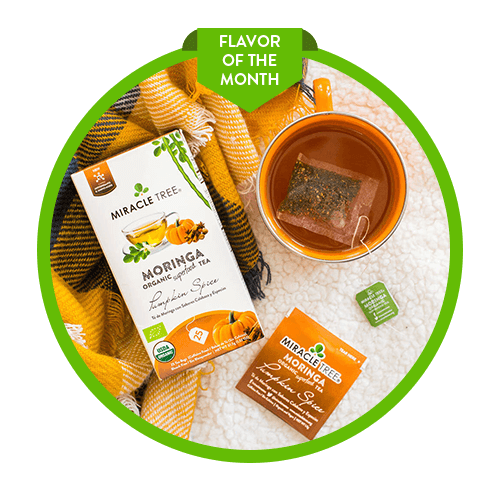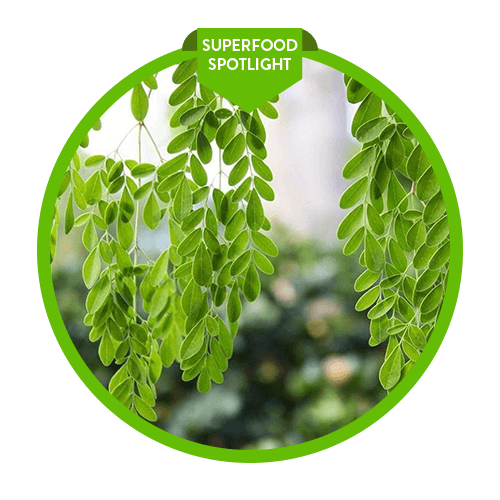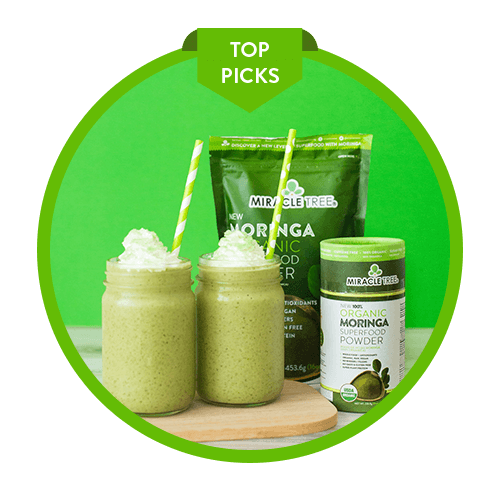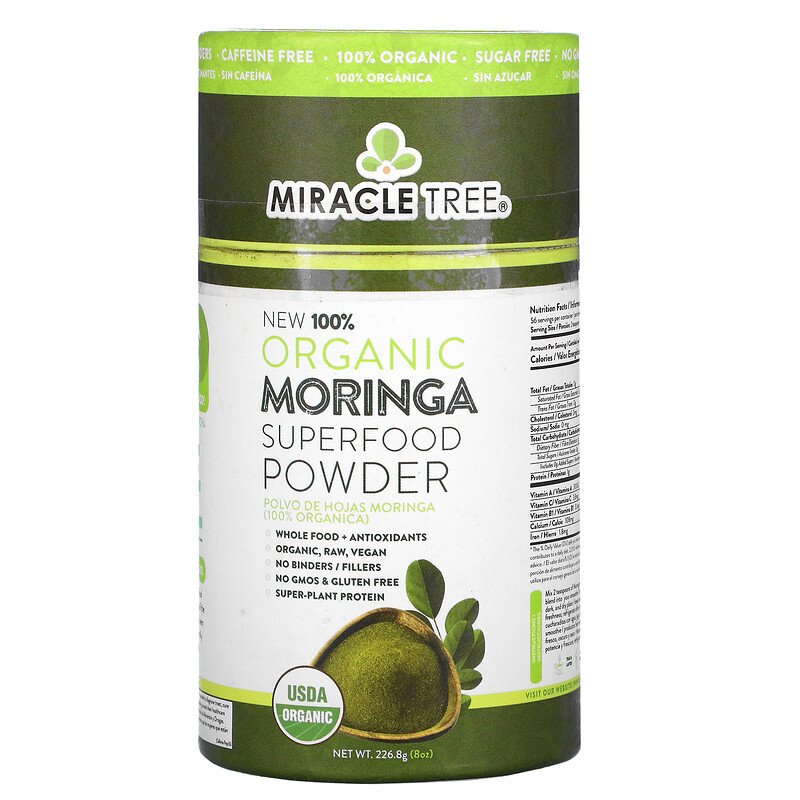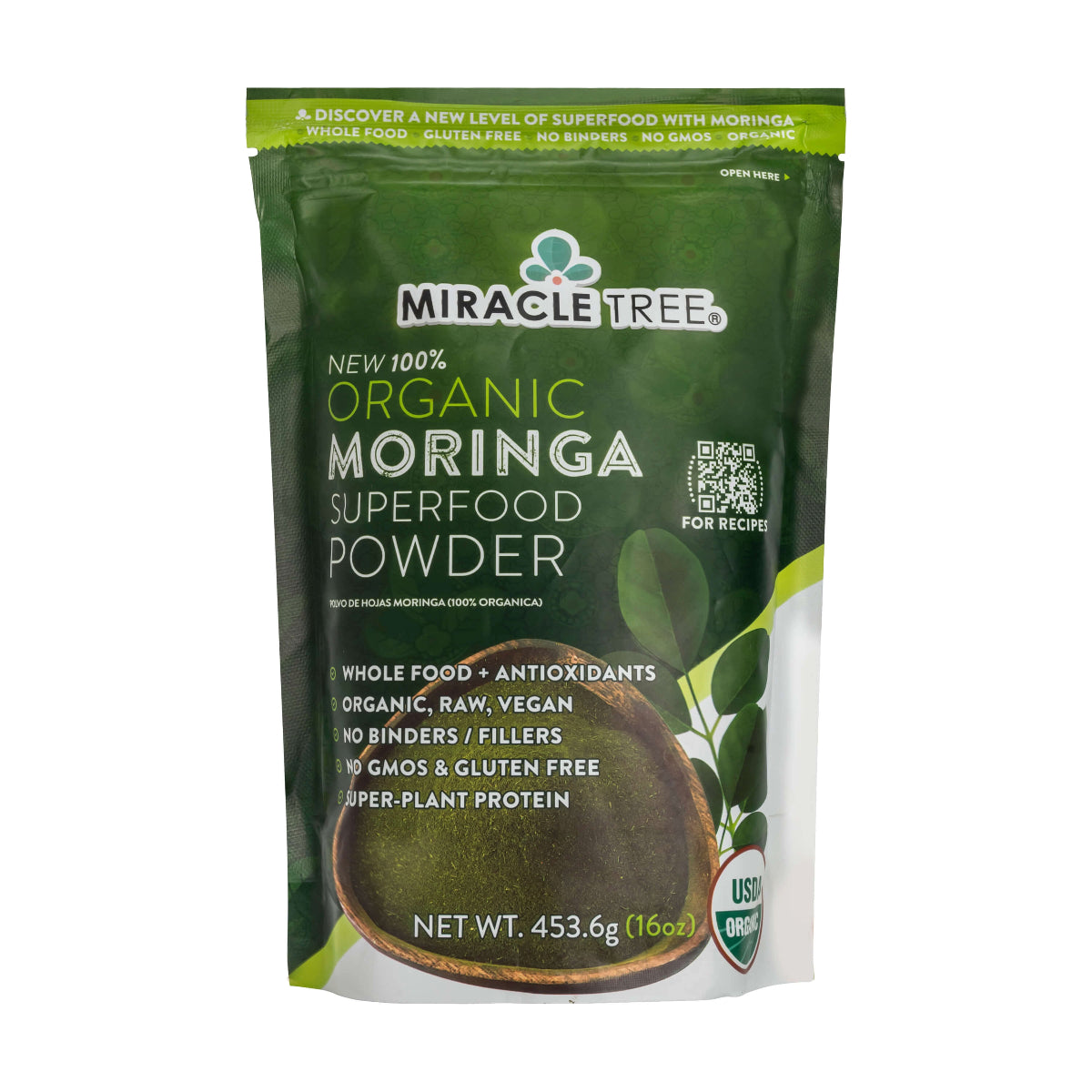As we celebrate National Fruits and Veggies Month, there's one superfood that deserves a special place in the spotlight: Moringa. Known as the "drumstick tree" or "miracle tree," Moringa has been gaining popularity worldwide for its exceptional nutritional value and versatility in culinary applications. In this article, we'll explore why Moringa deserves recognition during this health-conscious month and its role in promoting a balanced and nutritious diet.
Moringa: A Nutrient-Dense Superfood
Moringa leaves are packed with essential nutrients, making them a nutritional powerhouse that can rival many fruits and vegetables. Here are some of the key nutrients found in Moringa:- Vitamins: Moringa is an excellent source of vitamins, including vitamin A, vitamin C, and various B vitamins. Vitamin A supports healthy vision, vitamin C boosts the immune system, and B vitamins contribute to energy production and overall well-being.
- Minerals: Moringa contains essential minerals such as calcium, potassium, iron, and magnesium. These minerals play crucial roles in bone health, muscle function, and overall vitality.
- Antioxidants: Moringa is rich in antioxidants like quercetin, chlorogenic acid, and beta-carotene. These compounds help combat oxidative stress, reduce inflammation, and protect the body against chronic diseases.
- Protein: Moringa leaves are surprisingly rich in protein, containing all nine essential amino acids. This makes it an excellent plant-based protein source for vegetarians and vegans.
- Fiber: The high fiber content in Moringa promotes digestive health, supports regular bowel movements, and aids in weight management.
Moringa and a Balanced Diet
Incorporating Moringa into your daily diet can be an easy and effective way to enhance your nutrition. Whether you choose Moringa powder, capsules, or fresh leaves, there are various ways to enjoy this superfood:- Moringa Smoothies: Add a scoop of Moringa powder to your morning smoothie for an instant nutrient boost. Pair it with your favorite fruits and vegetables to create a delicious and wholesome drink.
- Moringa Salads: Sprinkle dried Moringa leaves or use Moringa oil as a salad dressing for an extra burst of vitamins and antioxidants.
- Moringa Soups: Incorporate Moringa leaves into your soups or stews during the colder months to elevate the nutritional content of your meals.
- Moringa Tea: Brew a cup of Moringa tea for a warm and soothing beverage that's both hydrating and nutrient-rich.
During National Fruits and Veggies Month, it's essential to recognize the value of Moringa as a nutritional powerhouse. Its impressive array of vitamins, minerals, antioxidants, protein, and fiber make it a versatile and beneficial addition to any diet. By incorporating Moringa into your meals and snacks, you can enjoy the benefits of this superfood and contribute to a healthier and more balanced lifestyle.
As with any dietary changes, it's advisable to consult with a healthcare professional or nutritionist to ensure that Moringa fits well with your individual health goals and needs.
Sources:
1. "Moringa oleifera: A review on nutritive importance and its medicinal application." Food Science and Human Wellness, Volume 6, Issue 3, September 2017, Pages 129-136.2. "Pharmacological Properties of Moringa oleifera: An Overview of Promising Healing Agents." Frontiers in Pharmacology, 2019, 10:1138.
3. "The Complete Guide to Nutrients." Harvard Health Publishing, Harvard Medical School, www.health.harvard.edu/staying-healthy/the-complete-guide-to-nutrients-overview.

